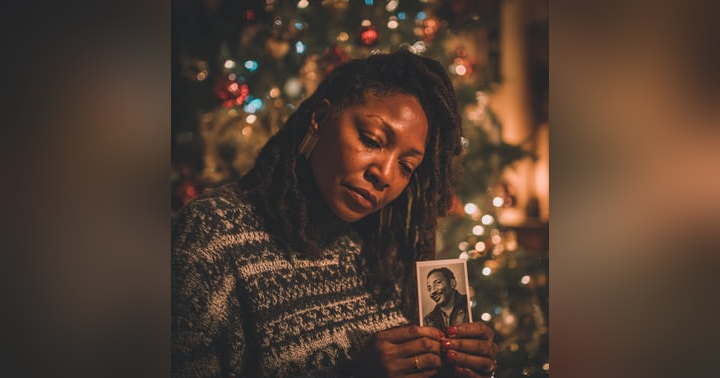The Science of Surviving Loss: How Grief Rewires Your Brain and the Path to Healing

The Science of Surviving Loss: How Grief Rewires Your Brain and the Path to Healing
Insights from psychologist Dr. Nekeshia Hammond on breaking free from the mental prison of grief
When Amanda, Sophy, and Kristin – three widows who host the Heartprints of Loss podcast – sat down with Dr. Nekeshia Hammond, they uncovered a truth that changes everything we understand about grief: it's not just emotional pain, it's a neurological event that fundamentally alters how our brains function.
Your Brain on Grief: Understanding the Survival Response
"When that stress weighs down on your body for too long... your body then can't heal and doesn't rest," Amanda explains during the conversation. This isn't metaphorical – it's biological reality.
Dr. Hammond, a psychologist and author of "Mindset Training: Conquer Your Mind and the Rest Will Follow," reveals that grief triggers our parasympathetic nervous system into a prolonged fight-or-flight response. Originally designed to protect us from immediate physical danger, this system wasn't meant to run continuously.
The result? A brain stuck in survival mode, unable to distinguish between past trauma and present safety.
Beyond Bubble Baths: Rethinking Self-Care in Grief
"The things I cringe about as a psychologist listening to the media about self-care is that we try to put it into a box," Dr. Hammond admits. The conversation takes a radical turn when she introduces her 60-second self-care philosophy.
Forget the pressure of spa days or week-long retreats. Dr. Hammond's approach is refreshingly accessible:
- Take 60 seconds to truly taste your morning coffee
- Practice mindful breathing while washing your face
- Step outside for a one-minute connection with nature
"Even if it's taking a step outside your door to go on a 5-minute walk... that counts," she emphasizes.
The Permission Paradox: Why Joy Feels Wrong (But Isn't)
One of the episode's most powerful moments comes when Dr. Hammond addresses the guilt many experience when feeling happiness after loss:
"It's a hard mindset shift, but it is possible to get to a place where you can understand that you're allowed to have joy and grief at the same time."
Drawing from her personal experience of losing a close mentor in 2020, she shares: "I can still have moments of joy in a really, really difficult, dark place of grief... It doesn't take away from the grief. It doesn't make the heartache go away, but you deserve to still have those moments."
The Mind-Body Connection: Stories of Healing in Action
Throughout the episode, each host shares their unique healing journey:
Kristin reveals her unwavering commitment to mental strength: "My mind is stronger than my heart... I work on my mental because I don't want it to go. Because once your mental go, it's you know, I mean... I've seen people who lose their spouses and then lost every, like, their mind and literally never recovered."
Sophy found solace in nature: "I chased after waterfalls for like a year in Georgia... those were like moments. And then I found myself crying sometimes there but it was just a relief."
Amanda emphasizes physical movement: "I feel like that touches on everything, but it's the physical for me... the exercise, the movement."
Rewiring for Recovery: Practical Strategies from the Frontlines
The conversation yields concrete strategies for neural rewiring:
- Challenge the Inner Critic
"Even if you say to yourself 'I'm a good person' or 'I deserve joy' and immediately your mind's like, no, you don't... it's still important to just keep going," Dr. Hammond advises. "You're working on rewiring your brain, especially after trauma."
- Embrace the Both/And
Grief and joy aren't mutually exclusive. "You can have both," Dr. Hammond insists. "I think people think it has to be one or the other, but it doesn't."
- Start with Gratitude
"Gratitude makes everything enough," Amanda reflects. Dr. Hammond's morning gratitude practice has become "life changing," shifting focus from loss to appreciation.
- Honor Your Season
"Check in with yourself and really start to ask yourself, you know, what do you need right now in this season, physically, emotionally, mentally, spiritually," Dr. Hammond recommends.
The Long View: Healing as Journey, Not Destination
As the episode concludes, Dr. Hammond offers a gentle reminder: "Give yourself grace. There's a lot of emotions that come out of grief that are very normal to experience."
The message resonates deeply with all three hosts, who have each walked their own paths through loss. Their stories serve as living proof that while grief may rewire our brains, we have the power to rewire them again – this time, toward healing.
The science is clear: trauma changes our neural pathways. But so does intentional healing. Every mindful moment, every act of self-compassion, every choice to feel joy alongside sorrow creates new neural connections.
Your brain isn't broken. It's protecting you. And with the right tools, it can learn to heal.
If you're navigating loss, remember that healing is possible. Listen to the full conversation on the Heartprints of Loss podcast, and consider reaching out to a mental health professional for personalized support.
Keywords: #GriefScience #NeuralRewiring #TraumaRecovery #MentalHealthHealing #BrainPlasticity #GriefJourney #MindBodyHealing #NervousSystemHealth #WidowSupport









